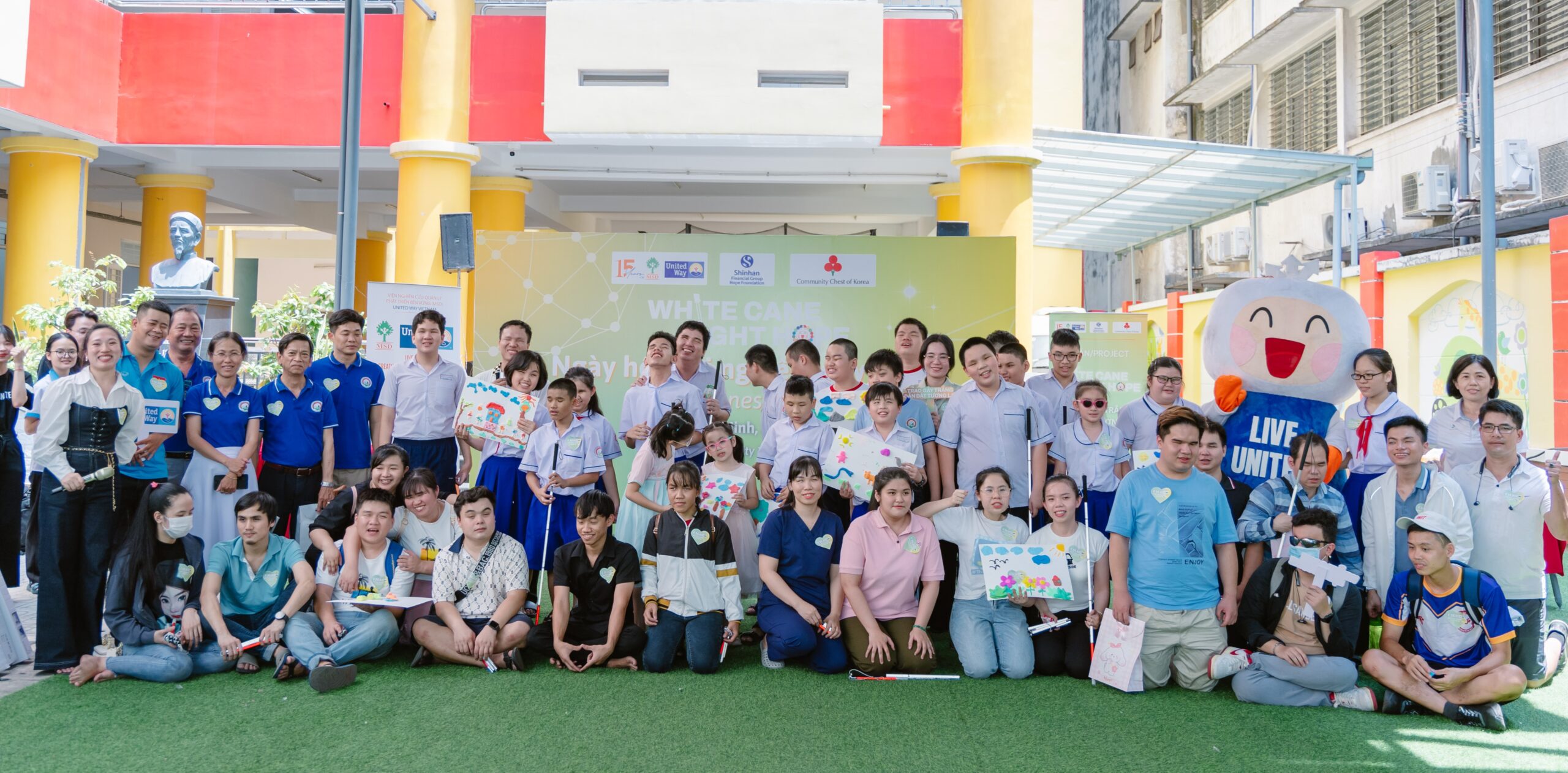The Management and Sustainable Development Institute (MSD United Way Vietnam) successfully organized two White Cane Experience Days in Ho Chi Minh City on April 12, 2024, and in Hanoi on April 16, 2024. This event is part of the “White Cane – Light Hope” project, also in celebration of Vietnam’s Disability Day 2024 (April 18th annually), organized by MSD United Way Vietnam. The experience day provided a flexible space for moving with the white cane through simulated daily life activities. The event attracted nearly 100 participants, including more than 70 blind children and youth from Nguyễn Đình Chiểu Special Education School, the Ho Chi Minh City Sports Training & Competition Center, and the Hanoi Blind Association Vocational Education Center.
White Cane Experience Day in Ho Chi Minh City
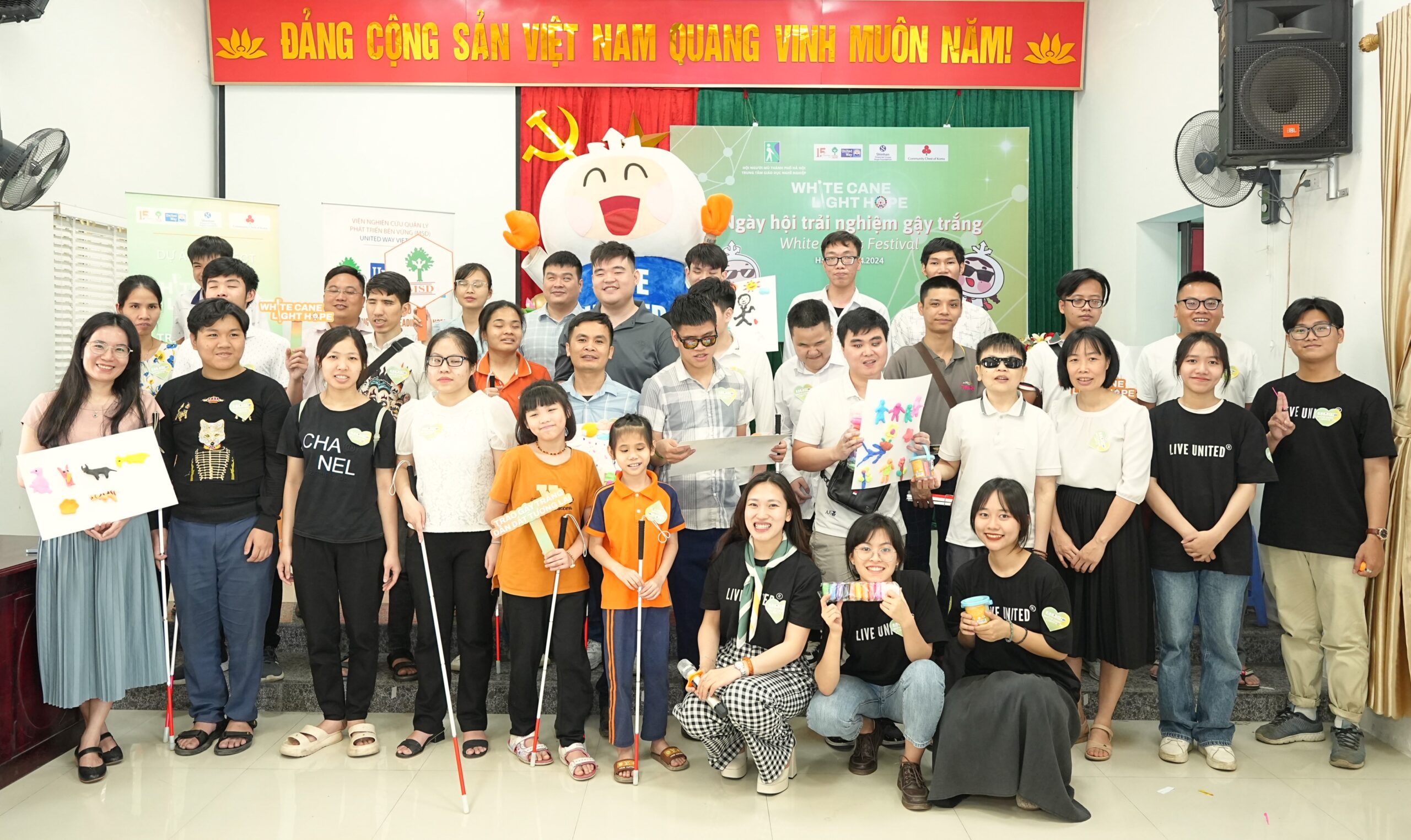
White Cane Experience Day in Hanoi
Sharing about the project’s journey and MSD’s efforts to support blind children and youth, Ms. Trần Thị Vân Anh – Deputy Director of the Management and Sustainable Development Institute (MSD-United Way Vietnam) stated: “Through the ‘White Cane – Guiding the Future’ project, MSD hopes that blind children and youth in Hanoi and Ho Chi Minh City, especially those in difficult circumstances, will have the opportunity to access quality education, nutrition, and healthcare services, enabling them to develop holistically. An important part of the project is designing the white cane to suit the user’s physical condition and the mobility environment in Vietnam. In addition to donating the white canes, MSD also organizes training and guidance sessions to help children use the cane effectively. We hope that during this event, and in their daily lives, the children will feel more confident in moving around with the support of the white cane and integrate better into learning and living activities. MSD Vietnam is committed to continuing to mobilize resources and work with partners and the community to promote access to and enhance the independent living of people with disabilities in general, and disabled children in particular.”
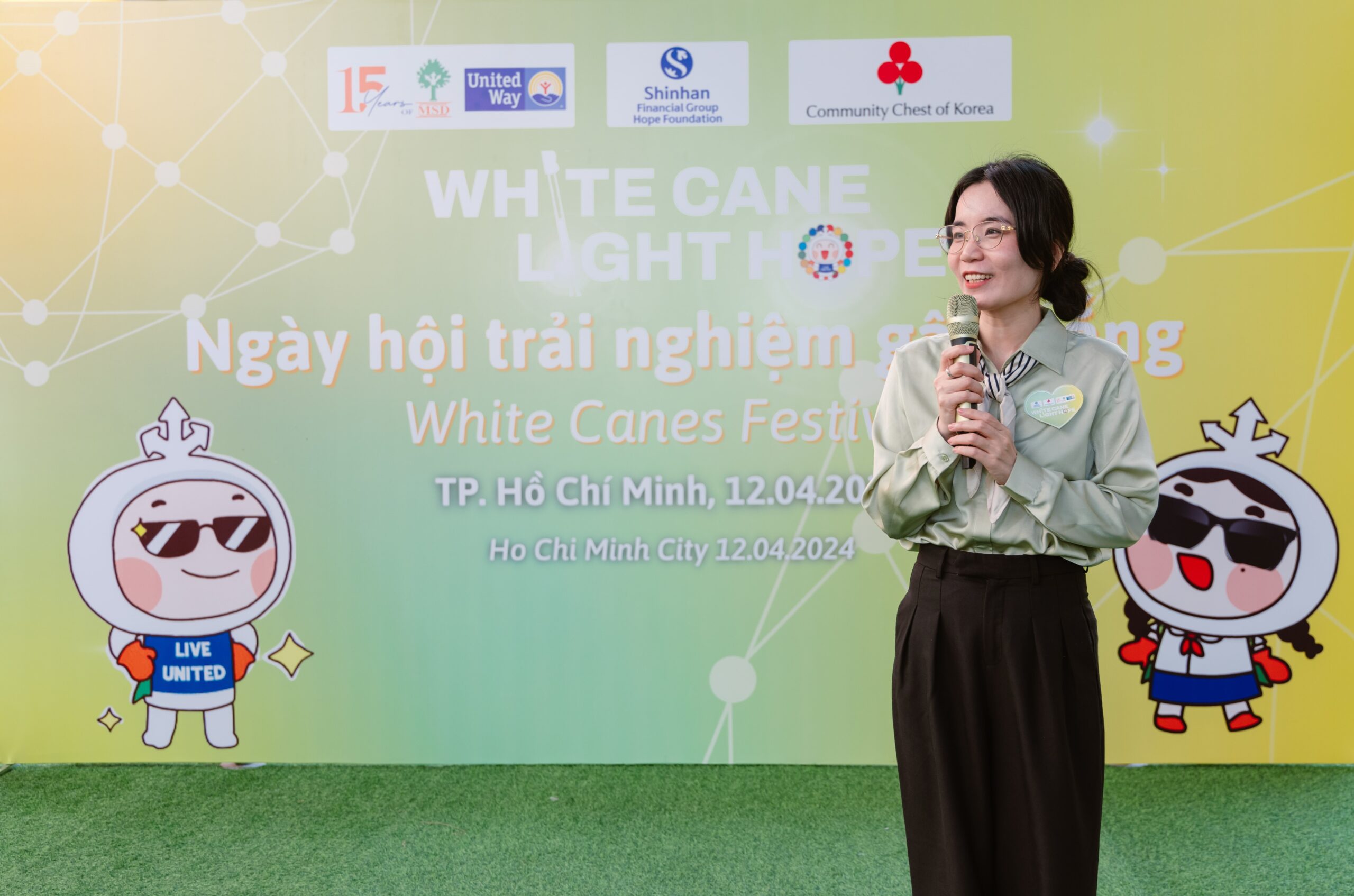
Ms. Trần Thị Vân Anh – Deputy Director of MSD, Opening Speech (Ho Chi Minh City)
Throughout the event, the blind students and youth actively participated in various activities and interactive games with the white cane. Through the supportive features of the white cane, which is specially designed and customized for blind children and youth in Vietnam, they found it easier to navigate within the classroom, school, home, and surrounding areas. This facilitated their meaningful participation in the event’s activities. The students had a wonderful time bonding with each other, enthusiastically “solving puzzles with teammates,” “molding art based on themes,” confidently presenting colorful paintings that seemed to tell their own stories, performing in artistic shows, and interacting with the program.
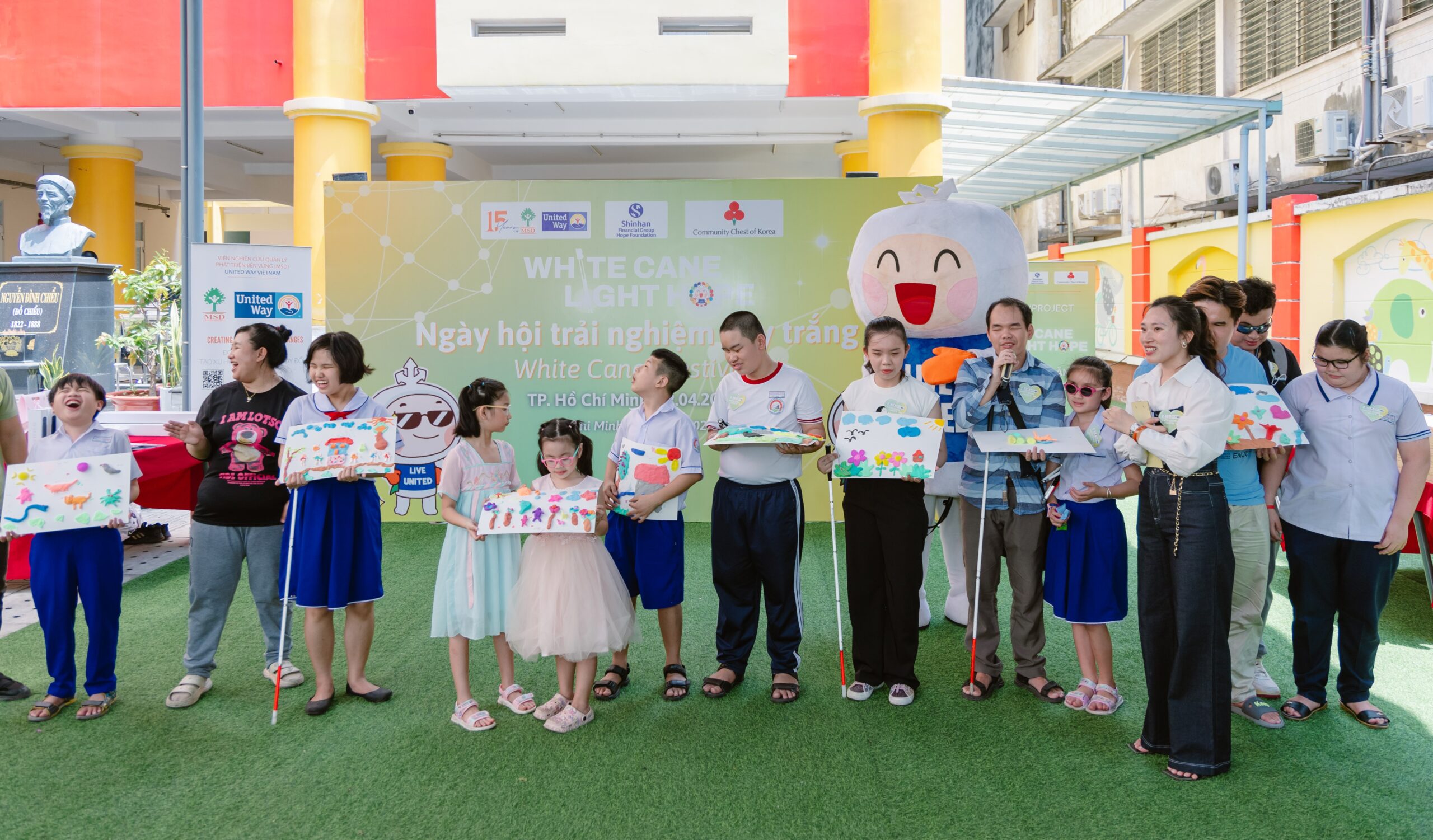
Theme-Based Art Modeling Activity at the Event (Ho Chi Minh City)
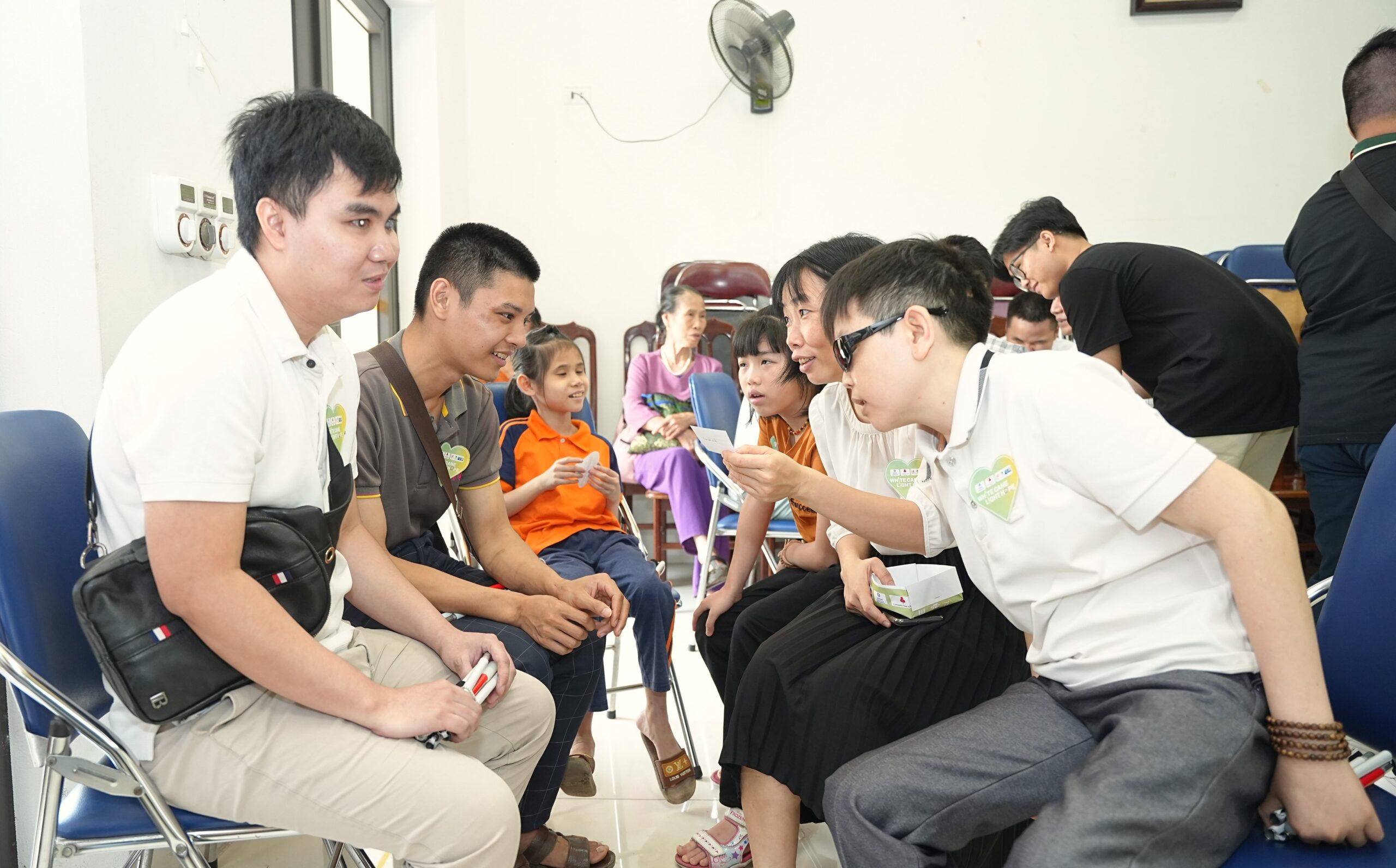
Blind Youth Enjoying the Team Puzzle Game with Teacher Support (Hanoi)
Witnessing his students benefit from the project’s support with the white cane and actively participating in the interactive games and activities at the event independently and energetically, Mr. Nguyễn Phi Hùng, a mobility orientation teacher at Nguyễn Đình Chiểu Special Education School in Ho Chi Minh City, emotionally shared: “We teach the students how to move with the white cane in the hallways and on the school grounds. This is part of their daily curriculum. The daily activities they will perform, from moving within the school to shopping at a grocery store, and eventually getting to the bus stop, are simulated and taught during our mobility orientation sessions. These skills help the students become more independent in life, integrate better into the community, and freely move to places they desire. We are very grateful to the project for caring, sharing, and creating opportunities for the students to learn and become more confident. By providing white canes and support packages related to education, healthcare, and nutrition, the students receive quality education, healthcare, and meals. We sincerely thank the MSD Institute for always accompanying the school, not only in this project but also in many other supportive activities.”
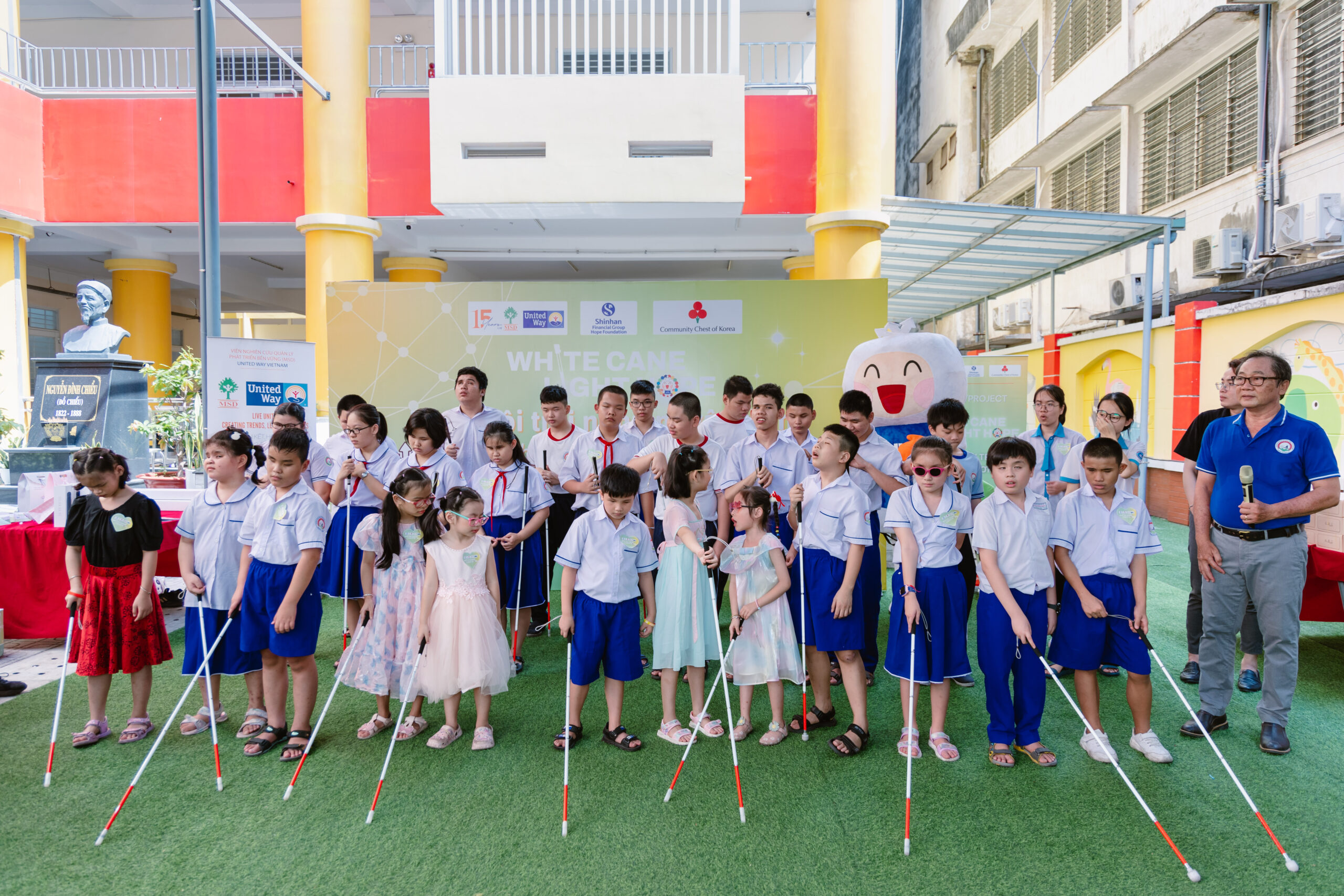
The Principal and Students of Nguyễn Đình Chiểu School Perform with the White Cane (Ho Chi Minh City)
Sharing during the program, N.T.T, a student from Nguyễn Đình Chiểu Special Education School, expressed, “I am very grateful to the teachers and staff at MSD for giving me the white cane. I use it every day to go to school and to the park. I feel confident moving around because the teachers have guided me very carefully. I hope that other blind students like me will always try to study well, love their families and teachers, and live happily.”
Đ.K.H, an athlete from the Ho Chi Minh City Sports Training & Competition Center, shared during the program, “In addition to the white cane, which is very effective and helpful for me in all mobility matters, I am also very thankful to MSD for giving me sports energy drinks and a Judo uniform for my training so I can improve my health. I thank the project very much. I want to send a message to other blind and disabled friends: be strong, everyone has their own strengths, and we will succeed in our own way.”
N.C.T, from the Hanoi Blind Association Vocational Education Center, happily expressed, “The project has supported me with the white cane – it’s my companion when I move anywhere. Besides going to work and school, I use the white cane to confidently go to dance classes for the blind, go shopping for food… With the white cane, I am independent in life and feel very happy. On Vietnam Disability Day (April 18) and the founding anniversary of the Vietnam Blind Association (April 17), I send my best wishes to all blind friends like me. Let’s always welcome the best things that come our way, no matter how challenging the circumstances may be. Stay optimistic and strong.”
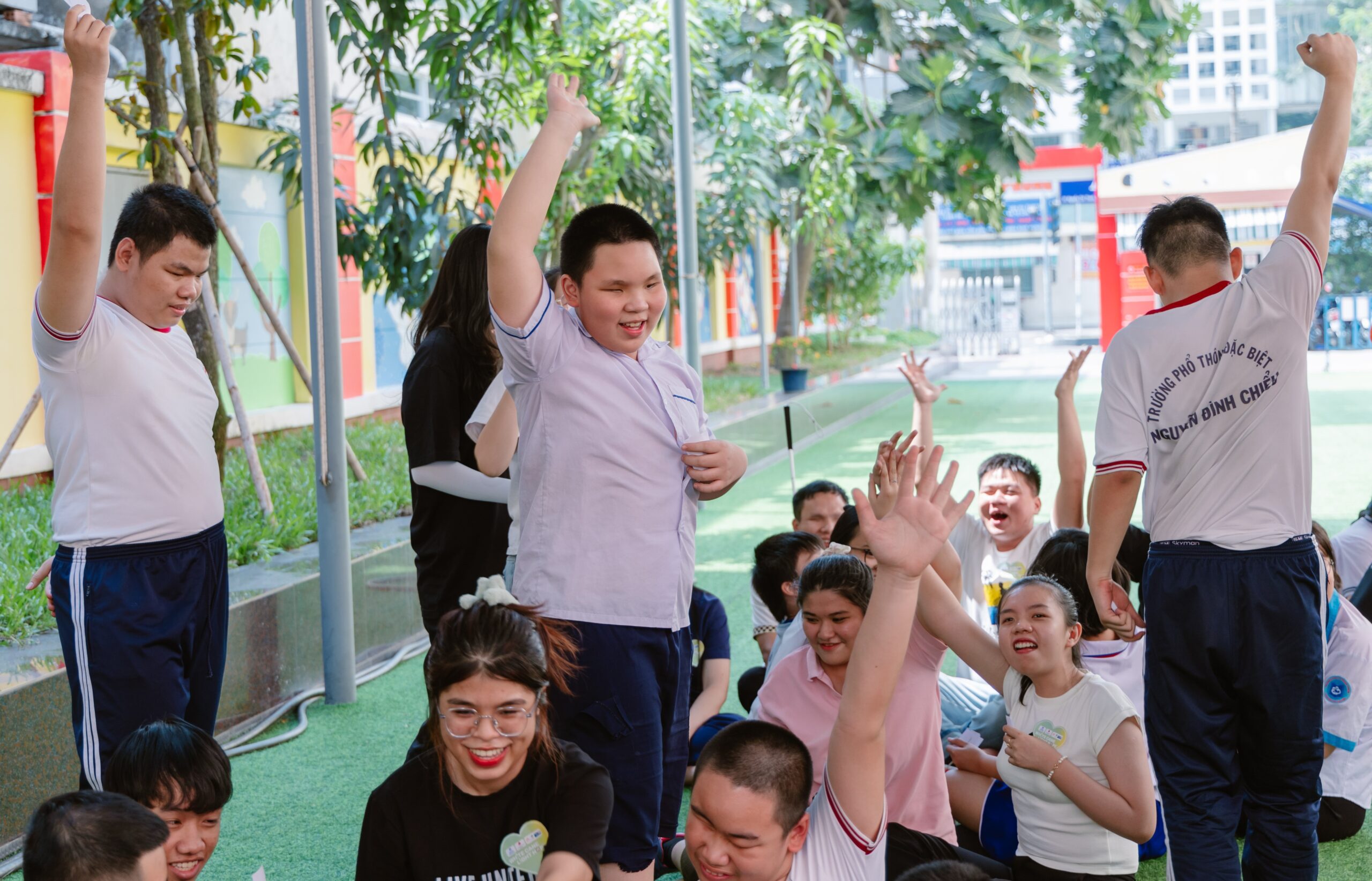
Students from Nguyễn Đình Chiểu School Enjoying Activities at the Event (Ho Chi Minh City)
The White Cane Experience Day is one of many activities under the “White Cane – Light Hope” project, aimed at evaluating the sustainable effectiveness of the white cane support and other assistance packages for blind children and youth to help them better integrate into society. Through this project, MSD Institute also hopes to raise awareness and community attention about the difficulties faced by blind children and youth.



